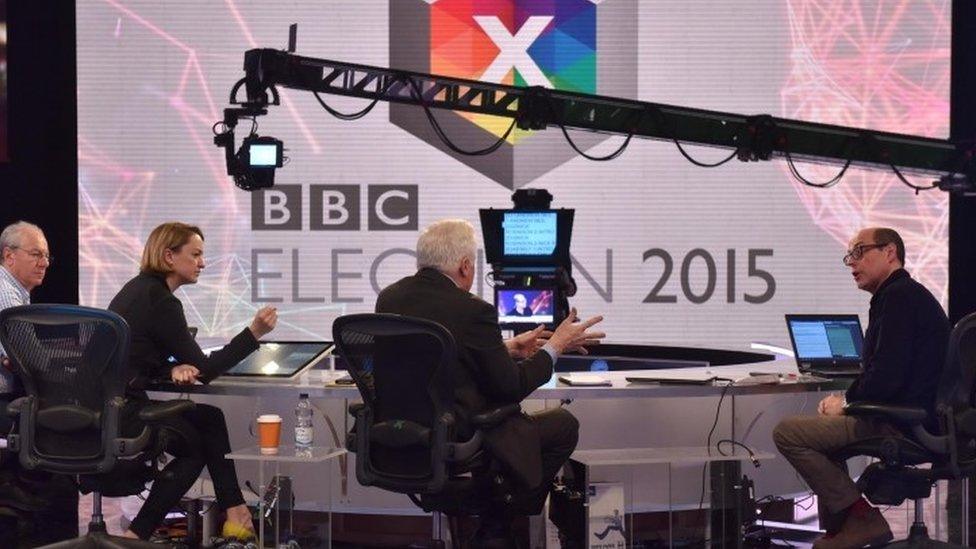Election 2015 polls: Why the polls mattered
- Published

To avoid the temptation of being wise after the event, let's get one thing clear. The polls which shaped much of the debate during last year's election were off.
And the dozens of surveys carried out by a host of polling companies did, to a significant extent, frame the discussion of politics, the examinations of policy, and the questions that politicians were asked by journalists like me, and the demands the public made of them.
Yesterday, one Conservative minister privately marvelled at how effective their party's attack line was, asking voters to imagine a coalition between the SNP and Labour under Ed Miliband, joking that under Jeremy Corbyn, it's a strategy that the party will be able to use again and again.
Election pollsters 'got samples wrong'
That element of the campaign was entirely a product of the polls that suggested parties would have to do deals with each other. If it hadn't looked like a hung parliament, would there have been more scrutiny of the Conservatives' plans, rather than focus on likely deals? Probably.
Labour politicians will be scratching their heads today as the party's inquiry into what went wrong carried out by the former Foreign Secretary Margaret Beckett points out some home truths to them.
The party was consistently behind on leadership and the economy. So why did so many in their senior echelons believe that they could win?
They were guided by the headline polls too, and their strategy and attacks were shaped by where they perceived their position to be among the public. Would there have been more exploration of their policy and ideas that could hypothetically have changed the campaign had there been less focus on possible coalitions? Maybe.
It was not of course, in the end, anything like a dead heat that would lead to a hung parliament.
I remember the audible gasp in the BBC's election studio when David Dimbleby read out the exit poll results putting the Conservatives clearly ahead, by a margin that was to grow and grow through the evening.
As the night went on, as Paddy Ashdown promised to eat his hat and Alistair Campbell said he would eat his kilt, a succession of politicians echoed the same line, "it's early in the night", as the numbers dribbled in.
By the morning, the Conservative victory was secure, three party leaders were poised to resign, the Scottish National Party proved utterly dominant in Scotland and David Cameron's Jag was being polished up to go and see the Queen.
But for all that the consequences of the 2015 polls were many and various, the reasons, as outlined today by academics, appear remarkably simple.
Pollsters didn't ask enough of the right people how they planned to vote. Proportionately they asked too many likely Labour voters, and not enough likely Conservatives.
Politics is not a precise science and predicting how people will vote will still be a worthwhile endeavour. Political parties, journalists, and the public of course would be foolish to ignore them. But the memories and embarrassment for the polling industry of 2015 will take time to fade.
For more, have a listen to the first in a series on political polling that teases out what happened and how it might have changed things in a BBC Radio 4 programme, Can we Trust the Opinion Polls?
Presented by the BBC's recently departed number cruncher, David Cowling, it's well worth a listen. (Despite my own contributions)
- Published19 January 2016